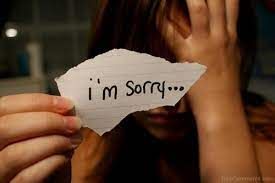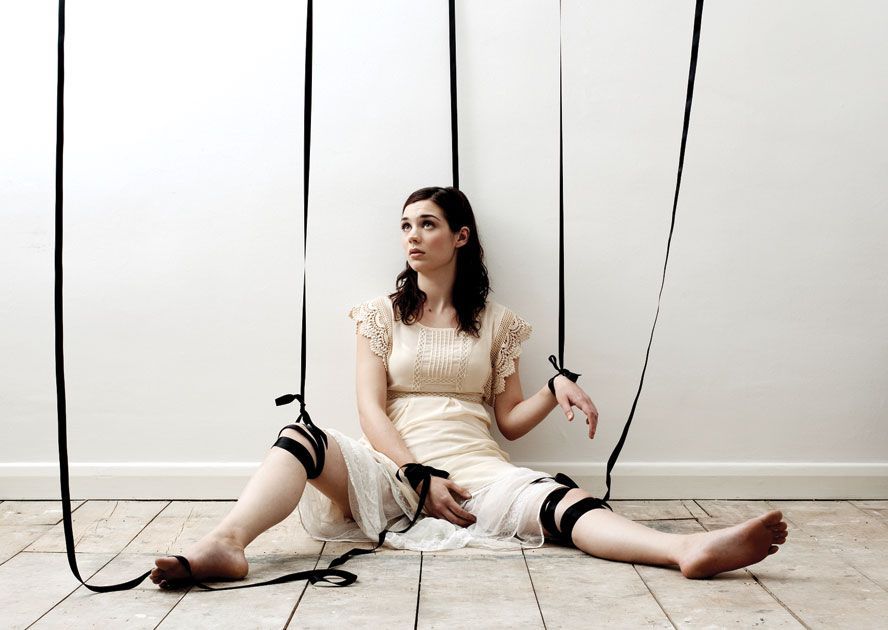1. Admitting your wrong
This doesn’t fit in with the story we tell ourselves about who we are. We don’t get things wrong! Often our brain helps us come up with excuses for our errors, or maybe we carry on as though all is normal, glossing over the damage we’ve caused. There can be a general denial of the facts, or an intentional moving of goal posts. Look at politicians as an example. In this situation we’re putting our need to be right before our relationship.
2. Feeling vulnerable
In saying sorry, you are letting down your guard and exposing your feelings and inadequacies. You’re risking rejection if your apology is not accepted. You may fear that your wrong doing makes you smaller in the eyes of someone you respect and love. Some of us during childhood were forced to apologize to others by our parents or teachers, and that made us experience shame. All this makes us feel uncomfortable and unsafe. You’ve wounded someone and taking ownership of that takes courage.
3. Lowers self-esteem
Apologizing makes us feel inadequate, and we can start to feel that there’s something inherently wrong with us. Admitting you are responsible for the situation can be humiliating. It may lead you to feel less confident, and reduce your sense of self-worth.
4. Relinquishing control
Apologizing creates a power shift. In a way you are handing over control to the other person and that can reduce your sense of autonomy. You may fear that your ongoing level of influence in the relationship will be diminished.
5. Avoidance of the “guilt trip”
By not taking responsibility for causing someone else’s pain, we avoid feeling guilty about it. Avoiding complex emotions like this can be an innate mechanism to protect us from experiencing uncomfortable feelings. An inability to take ownership for the hurt that’s been caused then becomes a dysfunctional coping strategy. What it’s saying is “It’s better that you’re hurting, than me feeling guilty about it.” (Also see: Why do we hurt the ones we love - here.)
6. Different perceptions
Sometimes there is a difference between how both parties perceive the seriousness of the wrong doing. This is called a “magnitude gap”. For example, if you were late and you both missed the concert, your partner may be devasted because they’d been looking forward to it for 6 months and bought a new dress, and got a baby sitter. You on the other hand might just think …. It was just a concert! Often, we might defend, justify or make up an excuse for our actions (or inactions). “I’m under a lot of pressure at work.” We might trivialize the hurt we’ve caused or say we didn’t mean it, and that it was unintentional. “Why are you making such a big deal about it?”
Sometimes we might refer back to a previous incident when the other person had been at fault. “You did exactly the same thing last week!” Transferring blame to the other person for their contribution to the current problem might also occur. “If you hadn’t wasted time on the phone, the whole thing wouldn’t have happened!” Unfortunately, minimizing the mistake, redirecting blame, or claiming the damage is insignificant, can only deepen the hurt that we’ve caused.
7. Our personal values are questioned
We all believe ourselves to be “good” by nature. We hope we are perceived as being moral, decent, sensitive and caring human beings. If you’re taking responsibility for something that contradicts this, you may struggle with your conscience. Your integrity and scruples are being put under the spotlight and, for some, this can be very troubling.
Some people spontaneously say sorry (without thinking) if they accidently bump into someone at the supermarket, but they’ll struggle to apologise to their partner after a heated argument. Apologizing for something insignificant (at the supermarket) doesn’t cast a shadow on our personal integrity. Admitting you have profoundly hurt the person you love – does. Guilt and shame can arise, and our sense of self is threatened. Admitting a wrong doing that reflects badly on our personal morality or character is a very difficult pill to swallow.
8. Shared accountability
Saying sorry indicates that you take responsibility for causing the problem. If both parties have contributed, you may feel it’s unjust for you to bear the blame entirely.
9. We lack empathy for the other person
Seeing the other person’s perspective is sometimes difficult for us. In tumultuous situations it’s often hard to put ourselves in the other person’s shoes. Understanding how the other person is feeling is sometimes low on our list of priorities, especially if we ourselves have been hurt in some way too. Some of us in fact, may have an inability to see any worldview other than our own. Unfortunately, this can lead to a full breakdown in communication, emotional connection, and potentially, the relationship.
IN THE END .....
An apology can make your relationship stronger. Admitting you have hurt someone, and that you are sincerely remorseful, is a powerful way to repair the harm that’s been done. It can re-establish communication, build trust and open the path to deeper emotional intimacy again.
Saying “I’m sorry” is hard sometimes. Consider why it’s hard for you. Then go ahead and do it anyway.
For more information about getting counselling support - see Relationship Issues.












